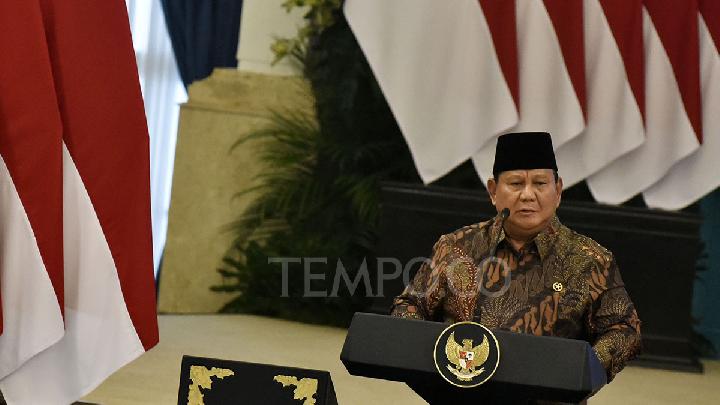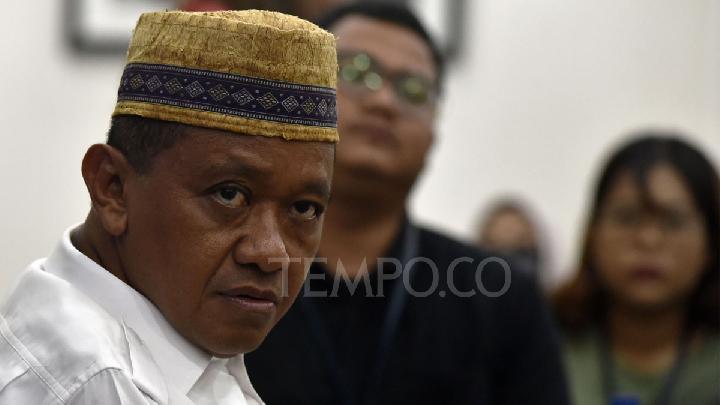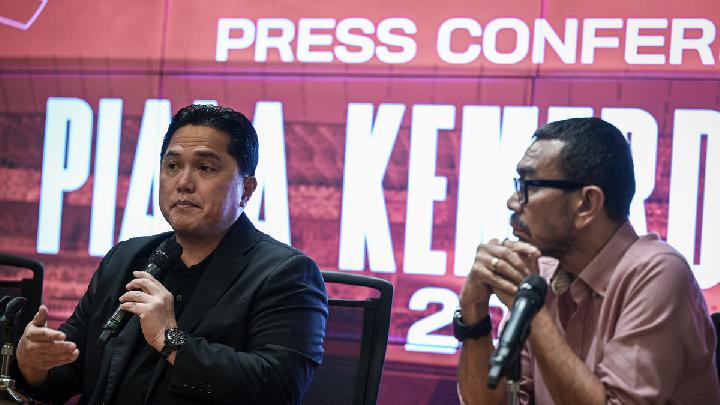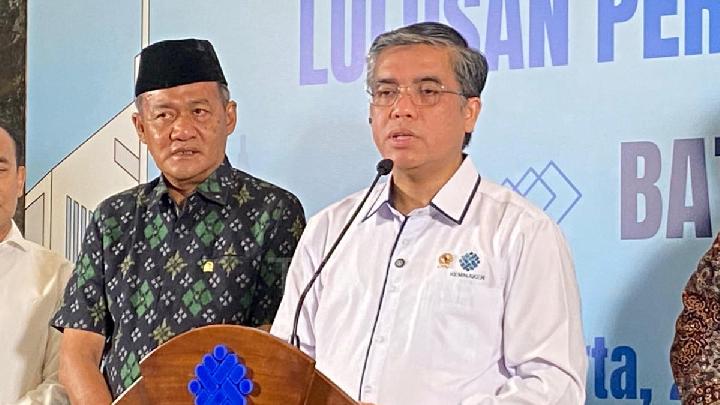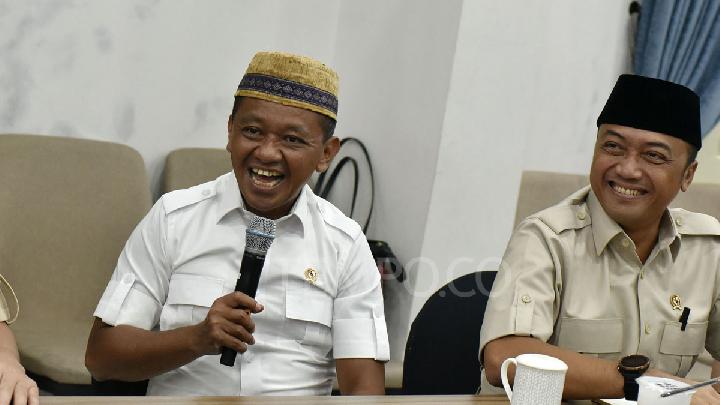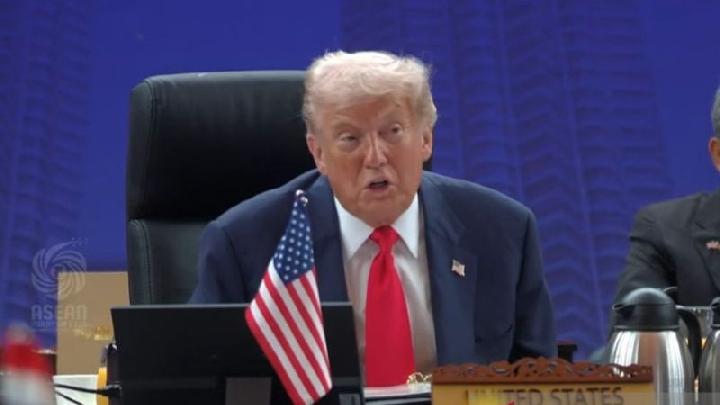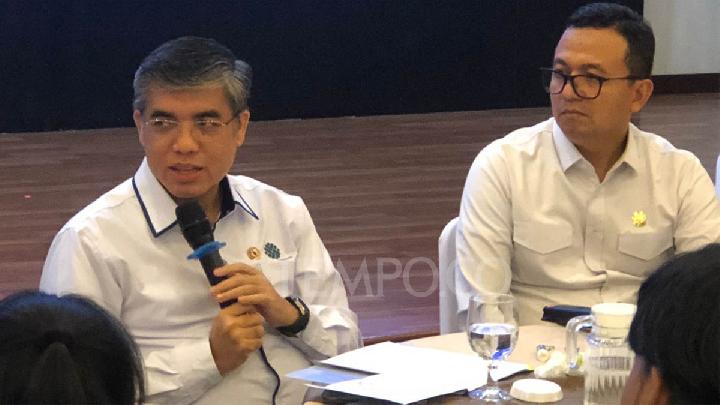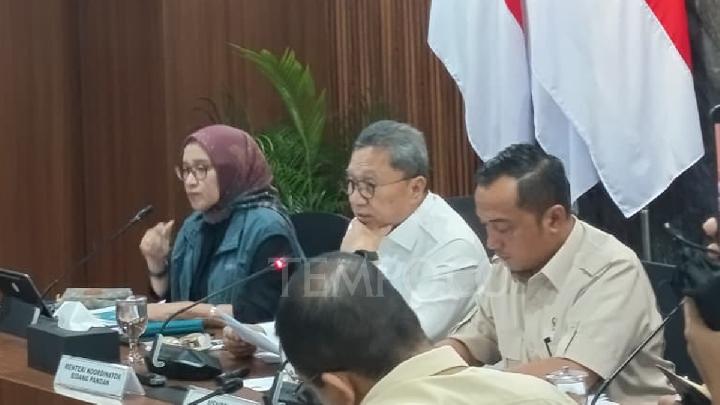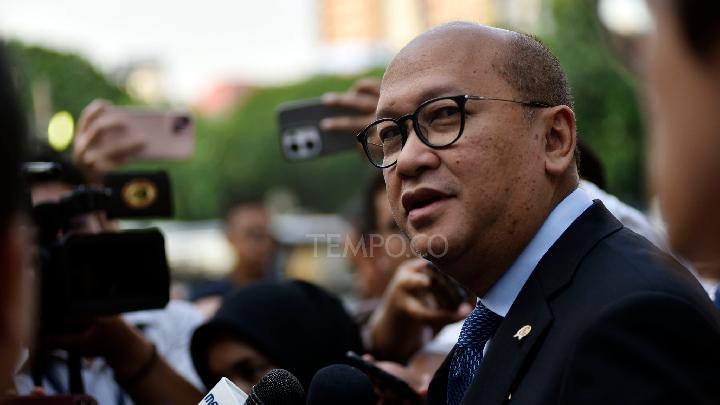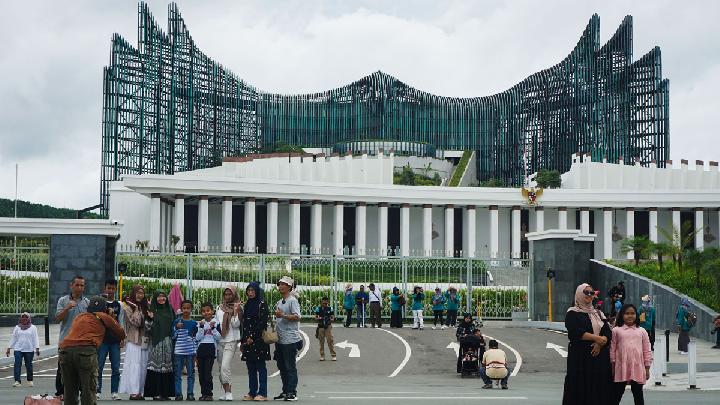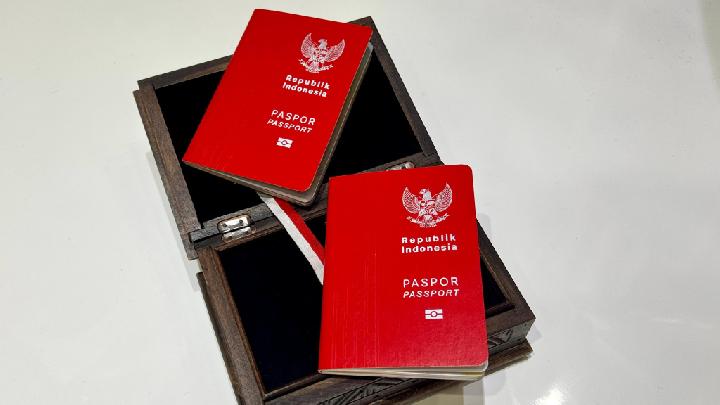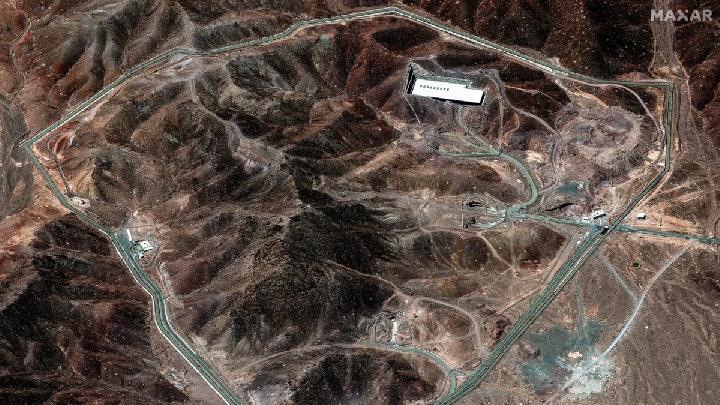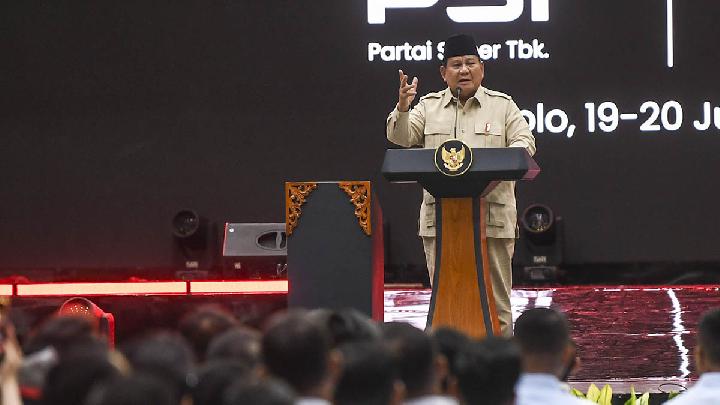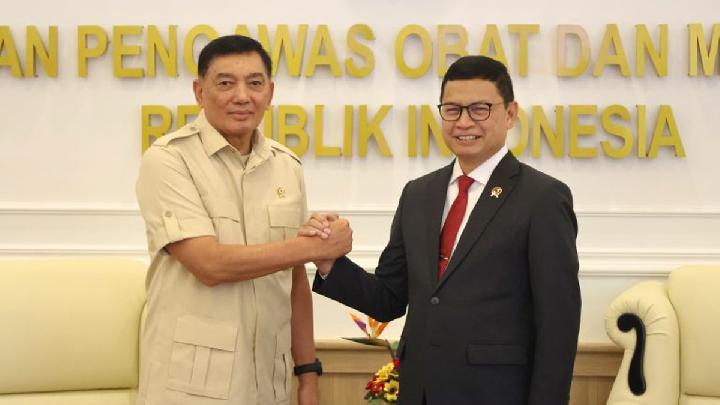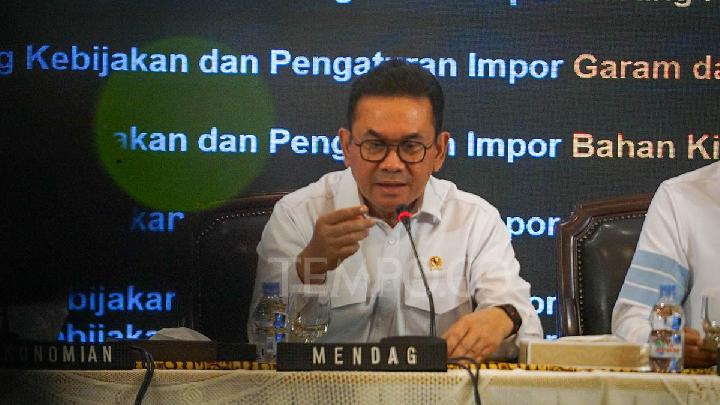TEMPO.CO, Jakarta - Discussions are ongoing in the House of Representatives (DPR) regarding the revision of Law No. 8 of 1981 concerning Criminal Procedure Code (KUHAP). On Tuesday, July 8, 2025, the DPR Law Commission held its inaugural working meeting with the Ministry of Law and the Ministry of State Secretariat.
During the meeting, Deputy Minister of Law, Edward Omar Sharif Hiariej, officially submitted the problem inventory list (DIM) for the KUHAP bill.
"Today's meeting is the first-level discussion on the Bill on Criminal Procedure Code. Since the faction quorum has been fulfilled, we declare this meeting open to the public," announced Chair of the DPR Commission III, Habiburokhman, at the Parliament Building in Senayan, Jakarta, on Tuesday, July 8, 2025.
However, on the same day, the Civil Society Coalition for KUHAP Reform released a counter-draft as a form of resistance to the DPR and the government's version of the KUHAP revision. Dozens of legal activist organizations and institutions collectively prepared this counter-draft.
Some of the organizations involved include the Institute for Criminal Justice Reform (ICJR), the Indonesian Legal Aid and Human Rights Foundation (YLBHI), the Association of Legal Aid and Human Rights of Indonesia (PBHI), Amnesty International Indonesia, the Commission for the Missing Persons and Victims of Violence (Kontras), Jakarta Legal Aid Institute (LBH Jakarta), Society Legal Aid Institute (LBH Masyarakat), Press Legal Aid Institute (LBH Pers), Institute for Policy Research and Advocacy for Society (Elsam), and Indonesia Corruption Watch (ICW).
Concerns Over Authoritarian Tendencies and Human Rights
The Coalition believes that throughout the legislative process, the official KUHAP draft has shown a tendency toward authoritarianism. They argue it expands the authority of law enforcement agencies without effective control and diminishes the role of victims, legal counsel, and citizens in the criminal justice process. The Coalition refers to their prepared draft as "legal counter-propaganda" against what they deem problematic legislation.
Kontras researcher, Hans Giovanny Yosua, stated that law enforcement procedures related to criminal acts need careful regulation to prevent human rights violations.
"So that there are no violations of citizens' rights in the process, and no arbitrariness in criminal law enforcement processes," Hans said in a collaboratively uploaded video statement on the Instagram accounts of @sahabaticw, @lbh_jakarta, and @kontras_update on Friday, July 11, 2025. Hans has granted Tempo permission to quote his statement.
The Coalition also advocated for a balance, or checks and balances, in law enforcement processes. Additionally, according to Hans, judicial scrutiny is essential. "For example, in the process of forced efforts, to ensure the process does not lead to actions such as torture or other forms of violence against citizens, especially those who become criminal suspects," Hans explained.
Features of the Counter-Draft
The Coalition's counter-draft, presented as a counter-narrative, aims to provide a more ideal vision for criminal procedure code. The Coalition has circulated this counter-draft on the reformasikuhap.id website.
According to the Coalition, their 225-page draft was prepared based on several key principles: protecting the basic rights of suspects, defendants, victims, witnesses, and persons with disabilities; strict oversight of forced efforts through independent Judicial Commissioners; strengthening access to legal aid and restorative justice; mechanisms for objections and rights recovery for victims of power abuse; and the renewal of a democratic, transparent, and accountable criminal justice system.
"This draft should also be considered the result of the work of civil society organizations who have long advocated for criminal procedure code policies," Hans added.
Critiques of the Official Bill and Legislative Process
Meanwhile, in a joint official statement, the Coalition emphasized a strong interest in protecting citizens' rights from the threat of abuse of power through criminal procedure code. Therefore, they prepared the counter-draft to ensure due process of law and human rights protection.
"On various occasions, the Coalition has stressed the importance of comprehensive content in the KUHAP Bill that respects and fulfills the rights of citizens facing the criminal justice system as complainants/reporters, witnesses, victims, experts, or suspects/defendants," the Coalition wrote in an official statement on Wednesday, July 9, 2025.
They argue that the KUHAP revision should be drafted carefully and meticulously to address the human rights assurances not met in the old KUHAP. The Coalition believes the 2025 KUHAP Bill fails to meet these requirements, contending it is even worse than the 2012 KUHAP draft.
"We observe that the process of drafting and discussing the KUHAP Bill tends to follow the same pattern as the drafting and discussion of other problematic bills," the Coalition said.
Some of the problematic legislative products they referred to include revisions to the Corruption Eradication Commission (KPK) Law, the Mineral and Coal Mining (Minerba) Law, the Indonesian Military (TNI) Law, and the Job Creation Law (Omnibus Law).
"This is part of a systemic strategy to weaken democracy. Legislation is no longer aimed at protecting the people but has become a tool of the ruling power," the Coalition asserted.
DPR's Response to the Counter-Draft
Chair of the DPR Law Commission Habiburokhman responded to the Civil Society Coalition's counter-draft. He welcomed the Coalition's initiative to prepare it. "Yes, please, submit it here. If you want to prepare a bill draft, become a DPR member then," the Gerindra Party politician remarked at the Parliament Complex in Senayan on Thursday, July 10, 2025.
Furthermore, Habiburokhman denied allegations that the drafting of the KUHAP Bill has had minimal public participation. He claimed the drafting process has been conducted openly. "From the beginning, even those who say that we are just talking nonsense, we have invited them. Even during Eid, we still invited them," Habiburokhman stated.
According to him, the articles in the KUHAP Bill are based on public input. He explained that the DPR Law Commission had listened to input from 53 parties with diverse backgrounds for the KUHAP's preparation. To date, he claimed that the DPR and the government had discussed 1,676 inventory lists of issues. The details are as follows: 1,091 articles were maintained, 68 articles were revised, 91 old articles were deleted, 131 new articles were added, and 256 editorial changes.
He disagreed with the notion that the meaningful participation advocated by the DPR in drafting the KUHAP Bill is mere rhetoric. He also welcomed the public to judge whether Parliament has truly followed this principle. "The articles included are from the public. Therefore, let the public judge whether we are just talking nonsense or they are," Habiburokhman concluded.
Oyuk Ivani Siagian and Dian Rahma Fika contributed to the report
Editor's Choice: KUHAP Bill: No Restorative Justice for Sexual Violence Cases
Click here to get the latest news updates from Tempo on Google News




